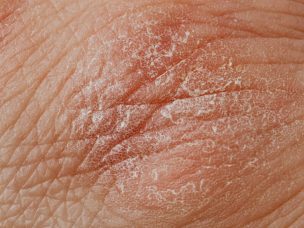Atopic dermatitis
The Real-World Burden of Disease Among Patients With Atopic Dermatitis
A sub-analysis of a multicountry study reports that, in addition to physical symptoms like pain and itching, individuals with AD also suffer from a decreased quality of life, which is evident through disrupted sleep, decreased ability to work, financial burdens, heightened anxiety/depression, and limited capacity to perform everyday tasks. Atopic dermatitis (AD) is a persistent,...
Dupilumab for Severe Atopic Dermatitis
Dupilumab effectively manages atopic dermatitis by reducing clinical scores and improving itchiness, sleep quality, disease control, and overall quality of life, according to the results of a single-center retrospective study. Atopic dermatitis (AD) is a chronic, inflammatory skin condition characterized by severe itching and recurrent eczematous skin lesions. AD is associated with symptoms such as...
Behavioral Disorders in Children and Adolescents With Atopic Dermatitis
Children and adolescents with atopic dermatitis are more inclined to exhibit aggressive behavior, which not only presents physical difficulties but additionally has a negative effect on their psychological well-being, according to the findings of a new cross-sectional study. Atopic dermatitis (AD) is a chronic inflammatory skin condition characterized by recurrent eczematous lesions and itching. Although...
Safety and Efficacy of Eblasakimab in Moderate-to-Severe Atopic Dermatitis
Eblasakimab is efficacious and well-tolerated for treating adults with moderate-to-severe atopic dermatitis, according to a recent cohort study. Atopic dermatitis (AD) is the most prevalent chronic inflammatory skin disease. Despite advances in systemic therapies for moderate-to-severe AD, therapeutic options remain limited. Eblasakimab is a novel human monoclonal antibody that binds the interleukin (IL)-13 receptor α1...
Psoriasis Severity Assessment Based on Artificial Intelligence
by Deileta Kamhunga An artificial intelligence-based psoriasis severity assessment model may be a promising alternative for dermatologists’ assessments, according to a real-world study. Psoriasis is a chronic, immune-mediated skin disease. The therapeutic management plan for psoriasis is established according to the degree of disease severity. The Psoriasis Area and Severity Index (PASI) is currently the...
Comparison of Candidate Biosimilar CT-P43 to Originator Ustekinumab in Plaque Psoriasis
CT-P43 demonstrated efficacy and safety comparable to originator ustekinumab in treating moderate-to-severe plaque psoriasis in a phase III trial. Plaque psoriasis is a chronic inflammatory disease with an estimated prevalence of ≥1.5% in Australasia, Western and Central Europe, and North America. Ustekinumab is a monoclonal antibody approved for treating moderate-to-severe plaque psoriasis. A randomized, active-controlled,...
Link Between Atopic Dermatitis and ADHD in School-Aged Children
Atopic dermatitis in school-aged children may significantly increase the risk of attention-deficit hyperactivity disorder, as shown in a recent study. Identifying the associated risk factors could aid clinicians in implementing timely interventions. A significant percentage (11.25%) of school-aged children with atopic dermatitis also displayed symptoms of attention-deficit hyperactivity disorder. Sleep disorders and elevated levels of...
Methotrexate for Cutaneous Cytokine Expression in Refractory Atopic Dermatitis
Methotrexate treatment for refractory adult atopic dermatitis leads to changes in the cutaneous expression of IL-31 and IL-31RA, according to a recent study. Atopic dermatitis (AD) is a chronic skin disease with a complex pathophysiology. AD treatment requires inflammation reduction and skin barrier repair. Therefore, methotrexate (MTX) may serve as a treatment for patients with...
Scratching in Atopic Dermatitis and Brachioradial Pruritus: Neuroanatomy and Sensations
Chronic scratching increases epidermal neuronal branching and sensitivity in patients with atopic dermatitis and brachioradial pruritus, according to a recent study. Persistent and excessive scratching can worsen itch intensity, leading to an itch–scratch cycle. This repetition causes skin barrier impairment and lichenification, characterized by enhanced inflammation and neuropathy. A study in Frontiers in Molecular Neuroscience...
More Medical News














